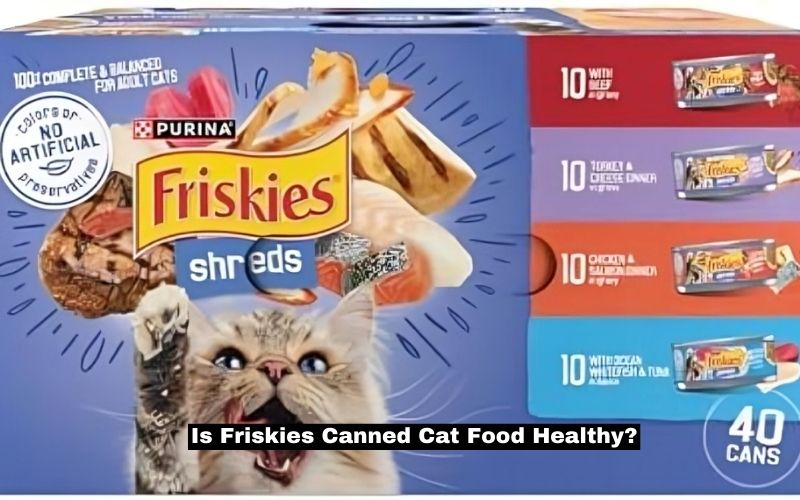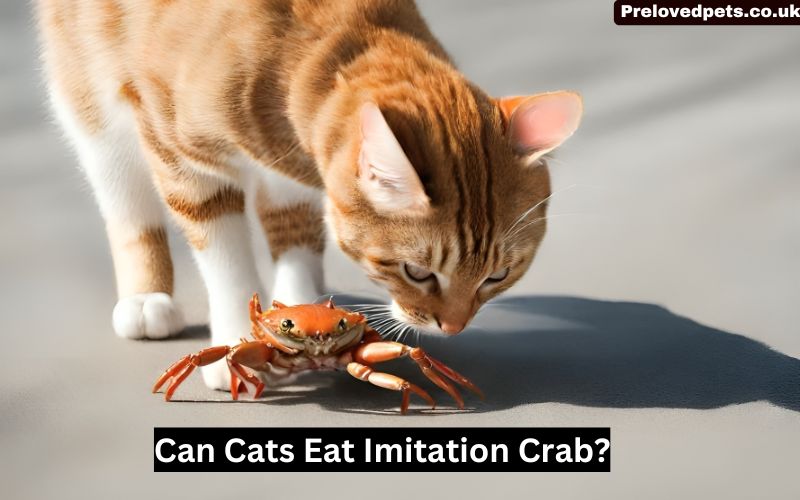When it comes to choosing the best food for our feline companions, the options can be overwhelming. Among the myriad of brands available, Friskies is a popular choice due to its affordability and wide availability. However, many cat owners question whether Friskies canned cat food is a healthy option for their pets. This article delves into the ingredients, nutritional value, and overall health implications of feeding your cat Friskies canned food.
Overview of Friskies Canned Cat Food
Friskies is a well-known brand owned by Nestlé Purina PetCare, one of the largest pet food manufacturers in the world. Friskies offers a variety of canned cat food flavors and textures, including pate, gravy, and shreds. The brand is marketed as providing a balanced diet that meets the nutritional needs of cats at various life stages.
Ingredients in Friskies Canned Cat Food
Understanding the ingredients in your cat’s food is crucial for evaluating its healthiness. Here, we’ll break down the common ingredients found in Friskies canned cat food and assess their nutritional value.
- Meat By-Products and Animal By-Products: These are non-muscle parts of animals, including organs and bones. While they can be a source of nutrients, the quality and source of these by-products can vary significantly. High-quality by-products can provide essential vitamins and minerals, but lower-quality by-products might not offer the same nutritional benefits.
- Water Sufficient for Processing: Water is necessary in canned food to achieve the desired texture and consistency. It also helps keep cats hydrated, which is particularly important if they are not big drinkers.
- Chicken, Beef, Turkey, and Fish: These are primary protein sources in many Friskies recipes. High-quality animal proteins are essential for cats, providing them with amino acids necessary for muscle maintenance, immune function, and overall health.
- Corn and Soy: These ingredients are often used as fillers in pet food. While they provide some nutritional value, such as carbohydrates and fiber, they are not as beneficial as animal proteins. Additionally, some cats may have allergies or sensitivities to these ingredients.
- Wheat Gluten: This is another filler that provides protein and helps create the desired texture in canned food. However, it is not as nutritionally dense as animal-derived proteins and can cause digestive issues in some cats.
- Artificial Colors, Flavors, and Preservatives: Some Friskies products contain artificial additives to enhance the appearance, taste, and shelf life of the food. While these additives are generally recognized as safe, some pet owners prefer to avoid them due to potential long-term health concerns.
Nutritional Analysis
To determine if Friskies canned cat food is healthy, it’s essential to look at its nutritional profile. Here are the key nutritional components to consider:
- Protein: Cats are obligate carnivores, meaning they require a diet high in animal protein. Friskies canned cat food typically contains around 8-12% protein on an as-fed basis. While this is within the recommended range, the source and quality of the protein are crucial factors. High-quality animal proteins are preferable to plant-based proteins or by-products.
- Fat: Fat is a vital energy source for cats and helps in the absorption of fat-soluble vitamins. Friskies canned food generally contains 2-6% fat on an as-fed basis. This is adequate for most cats, but the type of fat (animal vs. plant-based) can impact its overall nutritional value.
- Carbohydrates: Cats have a limited ability to digest carbohydrates, so a lower carbohydrate content is generally better. While specific carbohydrate percentages are not always listed on the packaging, the presence of corn, soy, and wheat gluten suggests that Friskies canned food may contain higher carbohydrate levels than premium cat foods.
- Vitamins and Minerals: Friskies canned cat food is formulated to meet the nutritional requirements established by the Association of American Feed Control Officials (AAFCO). This means it should provide essential vitamins and minerals necessary for a cat’s health, such as taurine, vitamin E, and various B vitamins.
Health Implications
Feeding your cat Friskies canned food can have several potential health implications, both positive and negative. Here’s a closer look at these effects:
- Hydration: One of the benefits of canned cat food is its high moisture content, which helps keep cats hydrated. This is particularly important for cats who do not drink enough water on their own, as proper hydration supports kidney function and overall health.
- Weight Management: The calorie content in Friskies canned cat food varies depending on the specific recipe. It’s essential to monitor your cat’s weight and adjust their food intake accordingly. Obesity can lead to various health issues, including diabetes, arthritis, and heart disease.
- Allergies and Sensitivities: Some cats may have allergies or sensitivities to certain ingredients found in Friskies canned food, such as corn, soy, or artificial additives. If your cat shows signs of food allergies, such as itching, vomiting, or diarrhea, it may be necessary to switch to a hypoallergenic or limited-ingredient diet.
- Digestive Health: The quality of ingredients and the presence of fillers can impact your cat’s digestive health. Cats with sensitive stomachs may experience digestive upset from lower-quality ingredients or higher carbohydrate content. In such cases, a higher-quality, grain-free diet might be more suitable.
- Long-Term Health: The long-term health effects of feeding your cat Friskies canned food depend on the individual cat and the specific product chosen. While some cats may thrive on this diet, others may benefit from higher-quality, more natural options. Consulting with your veterinarian can help determine the best diet for your cat’s unique needs.
Comparison with Other Brands
To provide a comprehensive evaluation, it’s helpful to compare Friskies canned cat food with other popular brands. Here are a few comparisons:
- Friskies vs. Fancy Feast: Both brands are owned by Purina and offer a variety of flavors and textures. Fancy Feast is generally considered a step up from Friskies in terms of ingredient quality, with fewer fillers and artificial additives. However, Fancy Feast is also more expensive.
- Friskies vs. Blue Buffalo: Blue Buffalo is known for its high-quality, natural ingredients and absence of artificial additives. It often contains more animal proteins and fewer fillers than Friskies. As a result, Blue Buffalo tends to be more expensive but may offer better nutritional value.
- Friskies vs. Wellness: Wellness cat food is another premium brand that focuses on high-quality, natural ingredients. It typically contains higher levels of animal proteins and fewer carbohydrates compared to Friskies. The higher cost reflects the quality of ingredients used.
- Friskies vs. Hill’s Science Diet: Hill’s Science Diet is a veterinarian-recommended brand that offers specialized formulas for various health conditions. While it may contain some fillers, the brand emphasizes balanced nutrition and is backed by scientific research. It is generally more expensive than Friskies.
Additional Considerations for Cat Owners
When deciding whether to feed your cat Friskies canned food, there are a few additional considerations to keep in mind:
- Individual Preferences: Just like humans, cats have individual tastes and preferences. Some cats may love the taste and texture of Friskies canned food, while others may prefer a different brand or type of food. It’s important to find a food that your cat enjoys eating and that you feel confident about feeding.
- Feeding Schedule and Portions: Establishing a regular feeding schedule and controlling portion sizes can help maintain your cat’s health. Overfeeding can lead to obesity, while underfeeding can result in malnutrition. Consult your veterinarian for recommendations on the appropriate amount of food for your cat based on their age, weight, and activity level.
- Supplementation: Depending on your cat’s specific health needs, your veterinarian may recommend dietary supplements to ensure they are receiving all necessary nutrients. This is particularly relevant for cats with specific health issues, such as joint problems or skin conditions.
- Mixing Wet and Dry Food: Some cat owners choose to feed a combination of wet and dry food. This approach can provide the benefits of both types of food, such as the hydration from wet food and the dental benefits from dry food. If you decide to mix foods, ensure that both types are nutritionally balanced and compatible.
- Special Dietary Needs: Cats with certain medical conditions, such as kidney disease, diabetes, or food allergies, may require a specialized diet. In such cases, it is essential to follow your veterinarian’s recommendations and choose a food that addresses these specific health concerns.
Real-Life Experiences
To provide a well-rounded perspective, it’s valuable to consider real-life experiences from cat owners who have fed their pets Friskies canned food. Here are some common themes based on user reviews and feedback:
- Positive Experiences: Many cat owners report that their cats enjoy the taste of Friskies canned food and show enthusiasm during mealtime. Some owners also note that their cats have maintained a healthy weight and good coat condition while eating Friskies.
- Mixed Reviews on Ingredient Quality: While some owners are satisfied with the quality of ingredients for the price, others express concerns about the use of by-products and fillers. These owners often prefer to invest in higher-quality, more natural options despite the higher cost.
- Health Improvements and Issues: Some cat owners have observed health improvements in their cats, such as better hydration and fewer urinary tract issues, due to the high moisture content in Friskies canned food. Conversely, a few owners have reported digestive issues or allergies, prompting them to switch to a different brand.
Read Also: Is Iams a Good Dog Food
Conclusion
Friskies canned cat food is a widely available and affordable option that meets the basic nutritional requirements for cats. However, the quality of ingredients and the presence of fillers and artificial additives may not make it the healthiest choice for all cats. While some cats may do well on this diet, others with specific health concerns or dietary sensitivities might benefit from higher-quality, more natural options.
Ultimately, the decision of whether to feed your cat Friskies canned food should be based on your cat’s individual health needs, preferences, and your budget. Consulting with your veterinarian can provide personalized guidance to ensure your cat receives a balanced and nutritious diet that supports their overall health and well-being.




